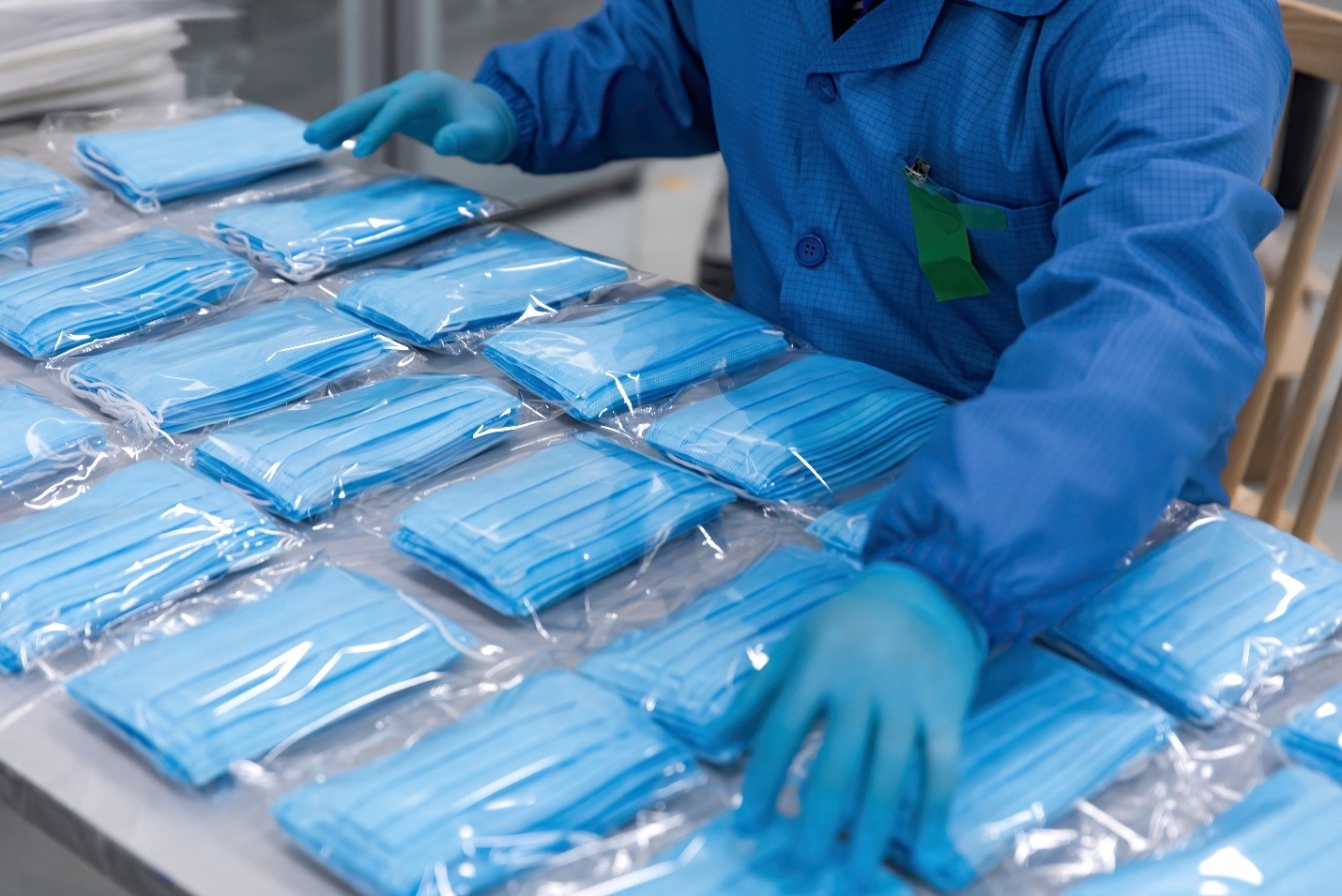Although we’re surrounded by bleak news regarding the current spread of COVID-19, there are still silver linings and inspiring narratives emerging that point to our collective underlying humanity. These uncertain times call for both wisdom and strong guidance. As famed optimist Mr. Rogers noted, there is always hope: “Look for the helpers. You will always find people who are helping.”
In that same spirit, there are plenty of businesses that have stepped up to the plate to help combat the current COVID-19 pandemic. If you’re a local business and want to help, there are plenty of ways to do so. Hospital resources are limited and even with near-nationwide shelter-in-place orders, resources are still strained as coronavirus cases continue to increase exponentially.
As a business owner, you have a unique opportunity to use your company as a force for good. Below are a few ways you can support healthcare workers and work to flatten the curve.
1. Transition your product line
iPromo, a Chicago-based promotional product wholesaler recently revamped their entire business model in order to respond to the global pandemic. In an effort to support healthcare workers, families, and staff members, iPromo launched their iHealth line featuring essential medical supplies like disposable face masks, gloves, thermometers, and other protective gear.
Beyond that, the company has taken steps to ensure products within their inventory go to hospitals and community assistance programs to help safeguard doctors and nurses on the front lines fighting this deadly virus.
2. Close if you’re not an essential business
Although the economy is struggling, it’s critical for businesses that aren’t considered essential to close. Closing down your business is a major sacrifice, but it means that you’re doing your part to discourage people from congregating and that you recognize the gravity of the current situation. By closing, you send a message that you take the pandemic seriously and others should too by staying home.

3. If you stay open, follow CDC guidelines.
Many essential businesses like restaurants, auto shops, pharmacies, and grocery stores remain open to serve their local communities. With that said, if your business remains open, ensure that sanitary policies and sick leave procedures are in place to protect your staff and the general population.
Here’s a quick checklist to evaluate your current compliance with updated CDC guidelines:
Sick policies:
• Actively encourage sick employees to notify their supervisor and stay home
• Sick employees should consult with a physician and stay in isolation
• Implement flexible workplace sick leave policies and cross-train employees on essential business tasks
Cleaning procedures:
• Clean and disinfect frequently touched objects and surfaces including doorknobs, keypads, workstations, and handrails
• Supply staff with hand sanitizer comprised of at least 60% alcohol content
• Give staff adequate hand-washing breaks
• Update store hours to account for extra cleaning and disinfecting
• Consider opening early for immunocompromised or elderly customers
• Increase indoor ventilation
Enforce social distancing:
• Limit the number of customers in store to ten people or under
• Place tape on the floor to show customers where they should stand when checking out to follow social distancing requirements
• Set up pick-up and delivery options to avoid gatherings and physical contact
• Consider staggered shifts to keep workers away from each other
Move to mandatory remote work:
• Implement work-from-home options where possible
Maintain channels of communication:
• Provide a place where employees can easily communicate with managers
More comprehensive guidelines can be found on the CDC website.
4. Help fight disinformation.
With any major event, disinformation and the spread of it is almost as nefarious as the virus itself. Companies can do their part by providing resources from trusted, scientific sources like the CDC and WHO.
Do your part, we’re in this together
It is easy to feel hopeless if you let yourself get wrapped up in the doom and gloom aspects of the pandemic crisis. With that said, business owners can help mitigate the negative effects and help slow the spread. We’re in this together, after all.




